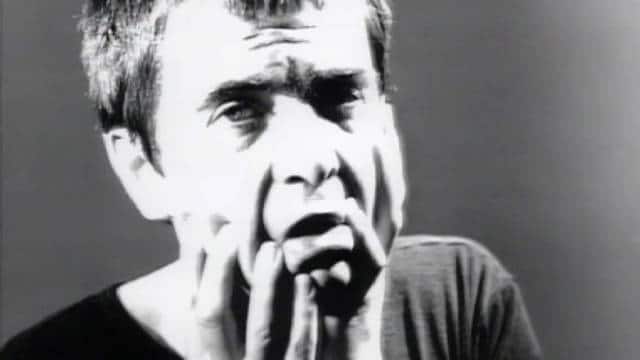It’s a Knockout!
But why this historical re-enactment? The answer is Games Without Frontiers , a song written by Peter Gabriel – the real genius mind of the Genesis – and released on the album in 1980, whose source of inspiration is more than obvious, also confirmed by ” It’s a Knockout“Repeated several times and that’s just the name with which the Games Without Borders over Manica were broadcast.
If the tune of sponges and gavettons were the exaltation of the peaceful, serene and carefree competition between the European countries, the atmosphere that exudes the text written by Peter Gabriel is diametrically opposed, in a continuous run of rather cryptic phrases , names that apparently say little and only in the end of the first verse let us guess what the metaphor behind them is. ” Adolf builts a bonfire, Enrico plays with it“Does not leave much doubt as to who Adolf and Henry, the first dictator of a leading social-nationalist Germany in the Second World War, the second, an Italian Nobel Prize, although he became famous especially for the deliberate use of his discoveries on nuclear power.
What strikes like a stinging fist is the oxymoron created by the cheerful notes and the whistle that accompanies the chorus and a text that makes of Games Without Frontiers one of the harshest criticisms of the war as we know it, an unhappy ballet directed by myopic and brave nations to send their offspring to the border.
The true masterpiece created by the British singer-author is the video that accompanies and makes the work even more significant. There are two versions: the one transmitted over television was a sweetened version, whose most significant scenes were replaced with jigsaw pieces, apparently the result of a censorship and nothing to do with the lapidary words repeated by Peter Gabriel.
Compared to the original version, there are no segments where, around a table strewn with every food, children are dressed in extremely elegant, extremely ridiculous and exaggerated clothes, while in the center, with a somewhat pale,
War is just a game
The transformation and banalization of the war in a children’s play, in Games Without Frontiers , as well as in the infinite FPS – but not only – that scales the best-selling video games of the year, volatile or malicious vehicles of a distorted message far from reality.
What’s to do with the war, the real one, which we only see filtered by the TG cameras, with the scenes of aircraft chase not even the engines of the GRA, explosions, ships that break in two, and colan peaks and fractures of hand to which we assist whenever we insert the disc or launch the executable of various Call of Duty or Battlefield, just to mention the two highest – read more well known – such exponents? The answer is very simple: nothing.
Nothing and it is perhaps just so, because there is nothing heroic and exciting, no supersquadrone of death or invincible hero in the long and wacky sieges of Mossul or Raqqa, stretched for months between a succession of aerial supports and advanced lens for the conquering a dam, an airport or a neighborhood where the real challenge is controlling the supply lines, which are fundamental to not being cut off from the back.
Yet these scenarios have seen them closely, the third chapter of Battlefield is set in the Middle East, but where are the palaces in Syria or Afghanistan blown up with just one shot of the launch and the next scream of victory of a scattered group of soldiers?
Maybe that’s right, because I would never bear a Battlefield 1who faithfully respected the theaters of the First World War clashes, much better than a blank spectacle, inflamed with personal stories and stainless protagonists, rather than muddy trenches, where to sleep alongside his antigas mask, always on the lookout of ‘inevitable attack with phosgene.
What are the risks involved in covering a mythical veil and surrounding with an aura of legend the conflicts that, though staged in a near or far future or in a historical past, virtualize daily on our PCs or consoles?

